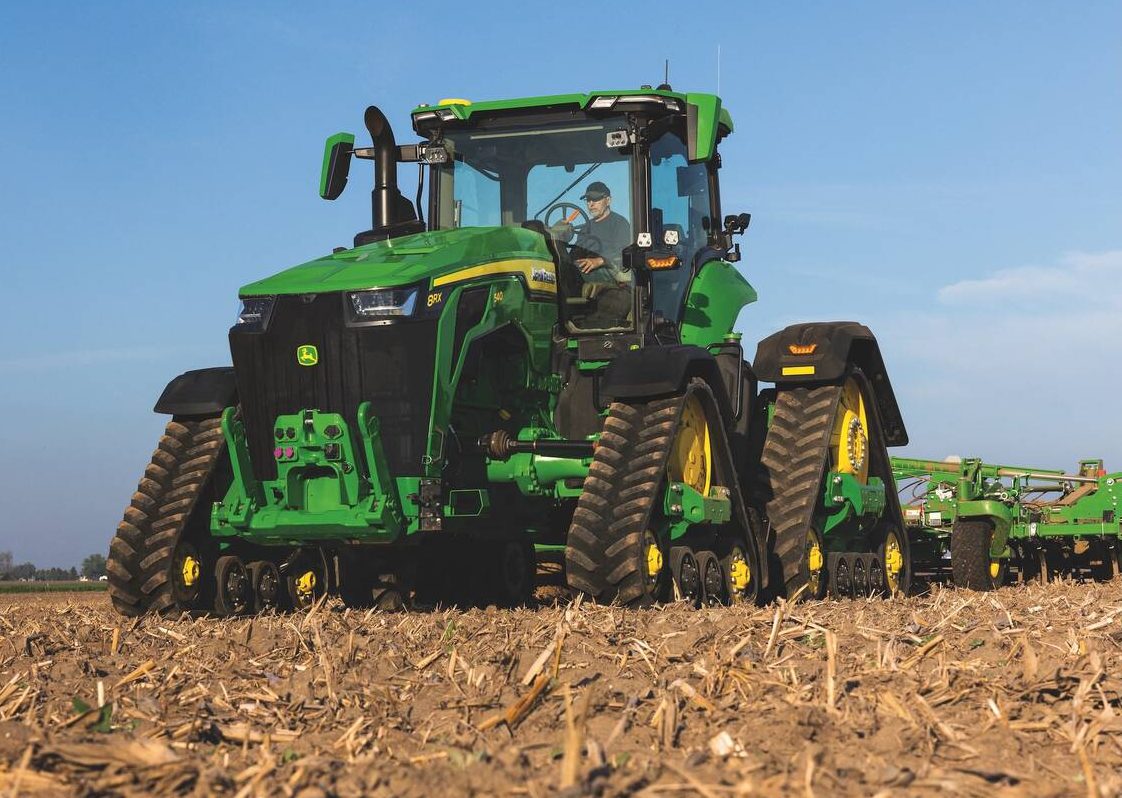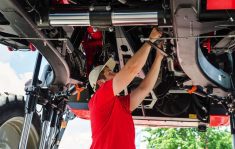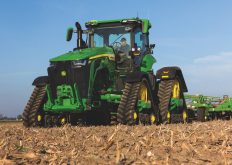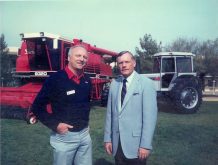Before a January “memorandum of understanding,” or MOU, on a farmer’s “right to repair” his farm machinery, U.S. equipment makers and their farm and ranch customers were locked in a legal and legislative fight over who could fix today’s complex ag machinery – the customer who owned or leased it, or the maker that designed, built and held its warranty.
But, say agricultural law experts, the trumpeted MOU between Deere & Co., the world’s largest farm machinery manufacturer, and the American Farm Bureau Federation (AFBF), the nation’s biggest farm group, is unenforceable.
In fact, they explain, the “understanding” offers no binding legal rights to either farmers or manufacturers and doesn’t stop any farmer or farm group from continuing their court and legislative fights for their “right to repair.”
Read Also

Deere adds six models to 8 Series tractor line
John Deere announced one of the most significant updates to its 8 Series tractor line since the addition of the 8RX version.
This battle and its hollow truce is a fight few foresaw a generation ago. Back then, farmers and ranchers routinely tackled equipment repairs as simple as changing their tractor’s oil or as complicated as rebuilding its engine.
Today’s farm machinery, especially tractors and combines, are driven more by software than diesel and their day-in, day-out performance swings as much on electrons and algorithms as cylinder compression and hydraulic hook-ups.
Farmers quickly learned to both love and loathe this complexity. At peak performance, the machinery is a highly productive, almost-alive partner that eats acres and performs tasks no machine could have even attempted 20 years ago.
At its worst, however, it’s a silent heap of costly steel and cold cast iron until some fuzzy-cheeked dealer technician shows up to reset an inaccessible switch or override some mysterious, proprietary computer code.
Thus the repair fight: Farmers and ranchers want machinery makers like Deere and CNH Industrial, the owners of Case IH and New Holland, to give them access to the information and tools they need to do what they’ve been doing since the dawn of farming: repair their machinery without additional cost or delay.
When private pressure failed to deliver that access, farmers began to lobby state legislatures and Congress for the right. Civil lawsuits – 16 in total, now consolidated into a federal class action – soon followed.
AFBF claims it worked to secure its Deere agreement, and on March 9, a similar MOU with Case IH, because its members wanted to dampen the escalating fight while gaining a clear understanding of what they can and cannot repair.
The six-page January memorandum does clarify some sticking points between farmers and manufacturers. But, say critics and attorneys, most of its language is too broad and too vague to be legally meaningful.
In fact, the memo, says Anthony Schutz, associate dean of the University of Nebraska College of Law, “is a press release at best. It creates no rights by any party” and “none of it is enforceable by any entity.”
So why secure a toothless, non-binding agreement that doesn’t give farmers any new right to repair?
It and the subsequent AFBF/Case IH deal “reduces the political pressure [machinery makers] were getting at the state level” from farmers and farm groups on repair issues, offers Schutz.
“At the same time, the Farm Bureau knew it couldn’t keep pushing state legislators against farmers’ rights to repair without causing problems for itself.”
Proof of that analysis came the month after the Deere/AFBF deal. On Feb. 20, the Colorado House of Representatives approved a state right-to-repair ag law over objections from machinery makers and a noticeably quiet state farm bureau affiliate.
Moreover, predicts Kevin O’Reilly, the right-to-repair campaign director for the Public Interest Research Groups, the House-passed Colorado resolution will soon pass the state senate and be signed into law.
The reason is simple, he says: “The MOUs between Farm Bureau and the machinery companies badly misunderstand the depth of anger among farmers over this issue. When enough states pass enough of their own repair laws, Congress will act.”
That is, if the federal courts don’t rule against the machinery makers first.
Either way, the MOUs were more memos of understatement than memos of understanding — because this fight is just getting started.
– The Farm & Food File is published weekly in newspapers throughout the U.S. and Canada.















